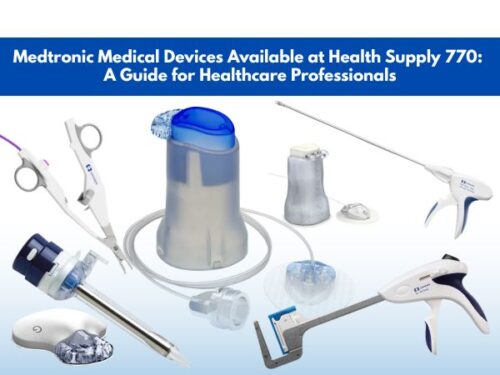10 Causes of Red Spots on Skin in 2023
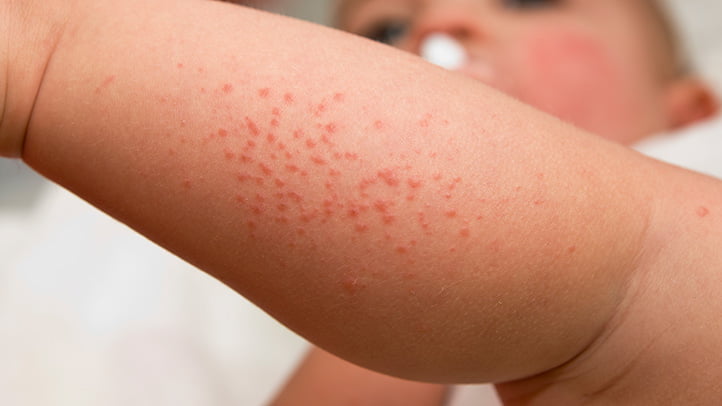
With the changing weather, it is common to experience skin redness and itching owing to the rising temperatures and the summer heat. Most of them subside within a few days and do not cause pain. However, in some cases, the problem can become severe flare-up can occur. There can be multiple causes of these red spots on the skin. In this article, we have compiled the 10 most commonly occurring skin problems in 2023 which result in the appearance of red spots and patches.
-
Heat rash
The most common cause of red spots on the skin is sweat production which clogs the skin’s pores. This trapped sweat within the skin gives rise to small blisters which turn into painful and itchy lumps. Areas more prone to be affected by a heat rash are the ones where the skin tissues get rubbed against each other e. g. armpits or the clothes rub with the skin e.g. near the neck. Using a calamine lotion or an anti-rash powder can help with this type of rash.
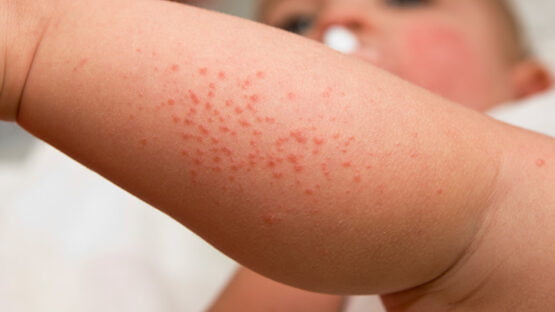
Heat rash affected skin
-
Contact dermatitis
When the skin comes into contact with an allergen or an irritant, there is a chance that it can react with it. As a result, an allergic reaction starts which covers the skin with red patches. This condition is called contact dermatitis. Symptoms of contact dermatitis include the following:
- Redness on the skin
- Formation of patches and hives
- Inflammation
- Burning sensation
- The crusty appearance of the skin
- Oozing blister formation
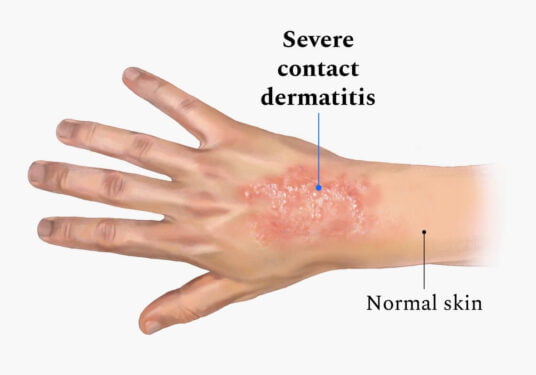
Contact dermatitis
To treat contact dermatitis, the over-the-counter creams serve as the best option. Moreover, anti-histamine medications can also be used.
-
Drug rash
If you are on medications and experience mild to severe skin rash, bumps, or patches, those drugs may be the cause of it. In this state, the best you can do is to contact your physician or pharmacist with the aim to change the drug.
-
Shingles
Shingles, a viral infection, is a condition in which half side of the face or body gets covered with painful blisters. The causative agent is varicella zoster virus (VZV).

Shingles
The symptoms include:
- Itching and redness of the areas
- Tingling sensation in the affected area
- Formation of blisters
Although anti-viral medications are available in the market to treat shingles upon the doctor’s prescription, the CDC also recommends getting vaccinated against the virus to prevent the disease.
-
Swimmer’s itch
Swimmer’s itch is a type of rash that is contracted by the water previously infected with a parasite that infects the snails and those, in turn, contaminates the ponds. Initial symptoms include redness of the skin, itching, as well as blistering.

Swimmer’s itch
Although the condition is short-lived and subsides naturally, if the symptoms still remain after a week, an anti-itch cream or lotion can be applied to relieve the condition.
-
Ringworm
Ringworm infection is a skin condition characterized by the presence of circular red rashes which cause itching and discomfort. The condition has a fungal cause and can be transmitted from one person to another i.e. is contagious. If this fungus affects the feet and groin, the conditions are called ‘Athlete’s foot’ and ‘Jock itch’ respectively. It is hard to treat a ringworm infection without medications so it becomes necessary to see your healthcare provider.
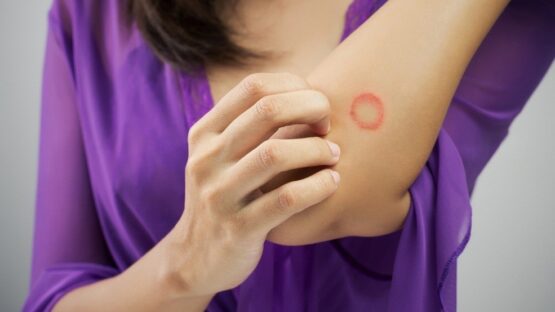
Ringworm infection
-
Atopic dermatitis
Atopic dermatitis is the popping up of red itchy and painful rashes on the skin. It is a type of eczema so the patient has an appeal to scratch the affected area which can result in blistering and cracked skin. Atopic dermatitis does not have a parasitic causative agent but genetics or autoimmune problems can be associated with it. Babies are at risk of contracting atopic dermatitis which either goes away with age or persists throughout life. Atopic dermatitis can be managed by moisturizing the skin and applying medicated creams.
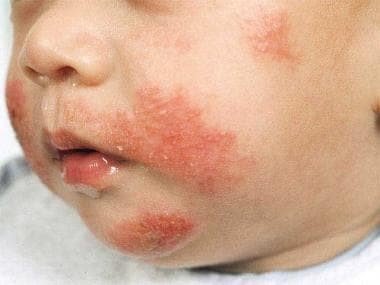
Atopic dermatitis
-
Pityriasis rosea
Pityriasis rosea is a condition in which redness and inflammation of the skin occur possibly due to a viral infection. The red rashes, resembling the shape of a Christmas tree, appear on the skin. The areas prone to pityriasis include the abdomen, chest area, and back. These patches vary in diameter and thus can be divided into two categories:
- Mother patches (the bigger ones)
- Daughter patches (the smaller and scattered ones)

Pityriasis rosea
Itchy patches of pityriasis are also associated with:
- Headache
- Fever
- Sore throat
Home-based remedies for pityriasis include:
- Application of calamine lotion
- Taking an oatmeal bath
-
Psoriasis
Psoriasis is an autoimmune condition characterized by the scaling of skin along with the appearance of red spots. Researchers have attributed genetics and environmental factors as the causative agents for psoriasis. Symptoms of the condition include burning and itching in the affected area. For the treatment of psoriasis, medicated creams, and lotions can be applied to the skin. Moreover, light exposure therapy can also be tried.
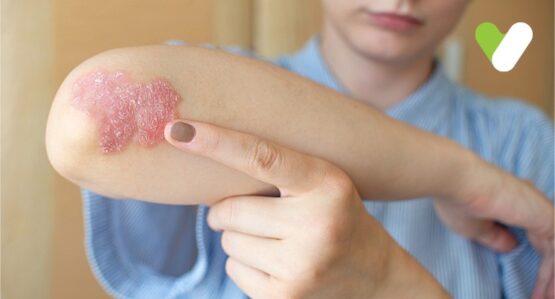
Psoriasis
-
Lichen planus
A rare condition resulting in itchy red rashes on the skin is lichen planus. The rashes are reddish and purplish in color as well as bumpy and scaly in texture. Wrists, ankles, and back are frequently affected by lichen planus. Medical treatment is required to get rid of the condition.
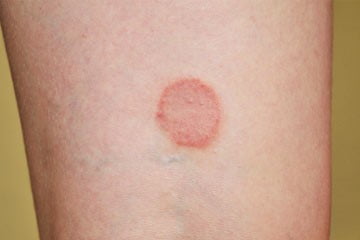
Lichen planus
Conclusion
The appearance of red patches on the skin is a common problem especially associated with hotter weather. There are multiple reasons for this condition to be caused which are, in most cases, not severe. However, if the situation worsens and the itching and redness do not subside after 7 to 8 days, it is better to take a medical opinion about it.
